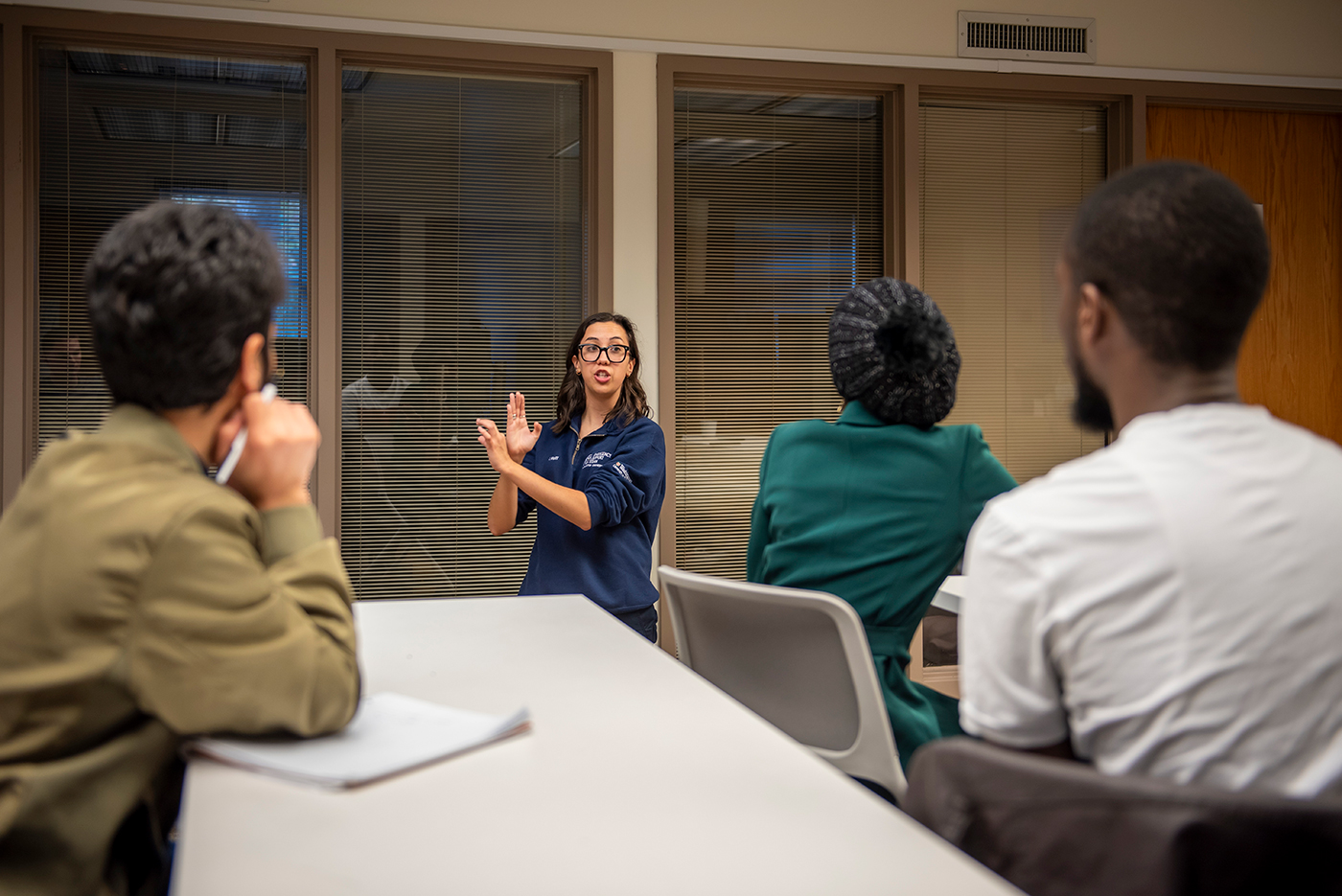Because of you, a multidisciplinary team of WashU faculty is shaping conversations among service providers and policymakers.

For many refugees resettling in the United States, success means more than finding a job or achieving financial independence — it’s about building a meaningful life in a new community.
Because of you, WashU faculty are helping amplify those voices and redefine what it truly means to thrive after resettlement.
In a recent study published in Refugee Survey Quarterly, a team of researchers from the Brown School and Arts & Sciences interviewed 36 adult refugees from Iraq and the Democratic Republic of the Congo, resettled in St. Louis and Denver. Their findings reveal that refugees define success in holistic terms — valuing dignity, personal growth, family support, and community connection alongside economic stability.
While participants appreciated the importance of financial independence, they also spoke about the challenges of learning a new language, navigating unfamiliar systems, and their desire to give back to the communities that welcomed them. Their responses suggest that current resettlement policies may fall short by focusing too narrowly on employment.
By centering refugees’ lived experiences, the study offers a compelling new framework for shaping resettlement programs that prioritize long-term wellbeing over short-term benchmarks.
The paper, “How Refugees Conceptualise Success: Grounding Definitions and Examining Heterogeneity,” was led by senior author Ilana Seff, a research assistant professor at the Brown School. WashU co-authors and co-principal investigators were Margot Moinester, an assistant professor of sociology in Arts & Sciences, and Lindsay Stark, a professor at the School of Public Health.
This work is already shaping conversations among service providers and policymakers — paving the way for more compassionate, effective resettlement strategies that reflect the full humanity of the people they serve.